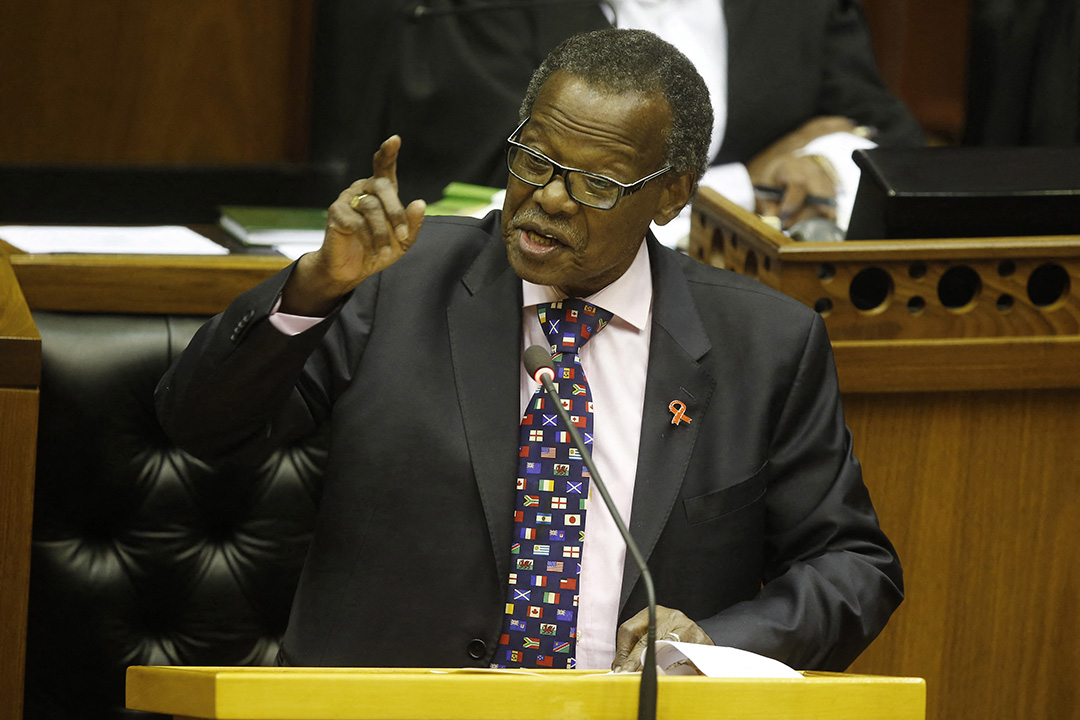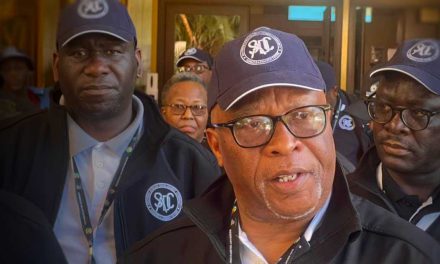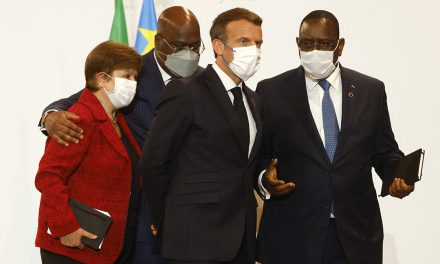In the early hours of Saturday, 9 September 2023, the Presidency of South Africa announced the passing of Prince Mangosuthu Buthelezi at the age of 95. At the time of his death, Buthelezi remained a serving Member of Parliament for the Inkatha Freedom Party.

The late Prince Mangosutho Buthelezi. Photo by MARK WESSELS/AFP
During this period of mourning, Good Governance Africa extends our condolences to the Buthelezi family. We also extend our condolences to the many surviving friends and colleagues who maintained relationships with Prince Buthelezi during his extensive period in politics and government.
The legacy Prince Buthelezi leaves is one of the most impactful, and controversial in modern South African history. Recent obituaries from both South Africa and abroad have noted this complexity, especially in the context of evaluating Buthelezi’s actions both before our seminal 1994 election, and afterwards.
A man of contradictions
To many, Buthelezi’s approach during Apartheid was contradictory. On the one hand, he was consistent in advocating for the release of political prisoners, and in calling for the Apartheid government to negotiate with liberation movement groups, most notably the African National Congress. On the other hand, Buthelezi opposed sanctions on the Apartheid government and chose to govern within the detestable Bantustan system that exacerbated the destruction of the social fabric of the country. Moreover, while he desired the end of white rule, he was personally ambivalent about the Zulu kingdom’s presence within a non-racial, unitary and democratic South Africa.
These contradictions came to the fore during our transition to democracy. The early 1990s, especially in KwaZulu-Natal was a period of widespread violence. Thousands were killed, and many more were maimed as IFP and ANC members frequently clashed. Often, local security forces did nothing to stem this violence.
Although the existence of an active “third force” was never established, and the true extent of Buthelezi’s personal role in directly instigating the violence remains unclear, both the Goldstone Commission and the Truth and Reconciliation Commission found that personnel within state security branches had actively abetted clashes. The main conduit of this was through the illegal sale of weapons to the IFP, transactions which the TRC claimed Buthelezi was not ignorant of.
A clear imprint on South Africa today
Buthelezi was also effective in exploiting the uncertainty produced by the violence to extract concessions from both the Apartheid government and the ANC. In his public statements, Buthelezi often identified his actions as occurring in the name of “regional federalism”. However, his actions, particularly his repeated attempts to jeopardise the legitimacy of our first democratic elections, and his role in the hasty establishment of the Ingonyama Trust on the eve of the 1994 election, suggested that his main objective had been to gain full legal autonomy for much of the Zulu Kingdom.
Even though he failed in this objective, Buthelezi’s strategy produced concessions which have left a clear imprint on our present system of government as well as on our national identity. For instance, it is highly unlikely that tribal authorities would enjoy the same extent of constitutional privileges and powers they currently possess without his presence. This is a highly contested space within our democratic dispensation.
Similarly, the continued status of the Zulu monarch, a private individual, as the sole trustee of the Ingonyama Trust land remains an arrangement unique in size and scope within the current constitutional framework governing land administration. Such arrangements have also limited the ability of the state to give legal expression to section 25c of the constitution that calls for increased security of tenure for citizens living in former “homelands.” In a more symbolic sense, it is noteworthy that of all nine of South Africa’s provincial names, “KwaZulu-Natal” alone makes direct reference to a specific ethnic group.
A laudatory coda
While Buthelezi’s actions during the Apartheid and transitionary periods of our history were in many instances highly questionable, his conduct post-1994 was generally far more laudatory. Despite his personal ambivalence toward a unitary South Africa, Buthelezi was by most accounts a dedicated Minister of Home Affairs during both the first Mandela-led Government of National Unity and the first Mbeki Administration.
Unlike the de Klerk-led National Party, which broke from the GNU in 1996, Buthelezi opted to keep the IFP within cabinet, thereby preserving the GNU’s multiparty identity and legitimacy. As South Africa hurtles toward an era defined by coalitions, the dedication of President Mandela and Buthelezi to maintain some working relationship, despite considerable personal and political tension, should serve as an inspiration to our political parties.
Buthelezi also displayed a broader commitment to grappling with critical humanitarian and governance issues facing Southern Africa. As a sitting cabinet minister at the height of the HIV/AIDS epidemic, he publicly criticised the policy of the Mbeki administration, arguing that it was inexplicable for the government to wait for court ruling mandates before distributing critical antiretrovirals to the broader public.
Well into his 90s, Buthelezi remained an active parliamentarian, frequently holding government officials and public servants to account, and lamenting the role corruption had played in eroding public trust in democracy and key institutions.
This reveals a crucial point about Prince Buthelezi. However controversial his actions in life, and narrow his personal political objectives, he saw the role of a leader as one which requires unwavering dedication to a defined public cause. Further consolidating the democratic system for which thousands died, requires all public-minded South Africans, whether they operate inside or outside government, to display a similar level of dedication.











